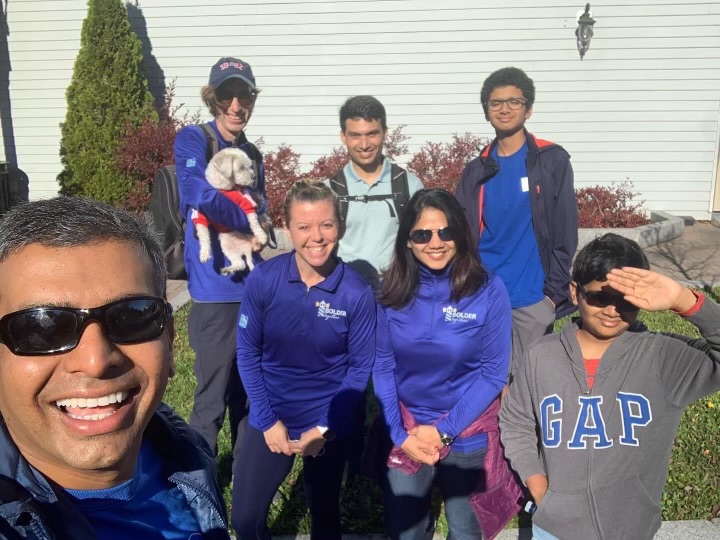Now more than ever, kids need the IWK
October 19th & 16th





OUR COLLECTIVE IMPACT
533
Runners signed up
$81,116
Funds Raised
1,716
Kms covered

Join us
Between October 14-15, 2023, all funds raised will help support the urgent priority care needs of the mental health and addictions program the IWK Health.
Registration is simple! Register below and set-up your virtual participant fundraising page. Participants can fundraise individually or as part of a team!


RBC Race for the Kids, supporting youth charities around the world
Over the past decade, the RBC Race for the Kids series has grown to include 25+ charitable events raising more than $82 million CAD for local charity partners.
RBC is supporting virtual and live family fun runs all over the world in 2023. Please join a race close to you and help these amazing youth charities continue their important work.
Thank you for your support!
DONATE
MAKE A DONATION
Support the IWK's Mental Health and Addictions Program
Did you know...
BEFORE COVID-19 PANDEMIC
1 in 5
CHILDREN AND YOUTH HAVE A CURRENT MENTAL HEALTH PROBLEM WARRANTING INTERVENTION WITH MENTAL HEALTH AND ADDICTIONS SERVICES.
LESS THAN
1 in 3
ACCESS HELP.
AS A RESULT OF COVID-19, THE IWK IS NOW EXPERIENCING AN UNPRECEDENTED INCREASE IN VOLUME WHICH THEY ANTICIPATE WILL CONTINUE.
Learn More
The IWK Mental Health and Addictions (MHA) Program is one of three clinical programs at IWK Health that treats children and youth up until their 19th birthday within a patient and family-centred context. Families are essential partners in the treatment and support of mental health and addictions challenges. For youth between 18 and 19 years of age who continue to require services, a transition plan to adult programs/services is put in place which includes enhancing skills for self-care and self-advocacy.
The MHA Program provides services in schools, community clinics, day and residential settings, as well as inpatient settings for the most acutely ill children and youth. Providing tier 1 to tier 5 levels of care, the services are evidence-based, which means supported by research. A variety of treatment options are available to match the needs and goals of the families seeking help.
An Overview of MHA Program
- 18 different services and over 13 community outreach partnerships
- 9 different locations across Nova Scotia
- Intensive inpatient care for Maritime children and youth
- Services within the community, schools, community mental health & addictions clinics, emergency department, day treatment and inpatient unit
- Barriers to accessing help include: stigma, long wait, family support and mental illness awareness
Even with the scope of the above services and reach, and before the emergence of COVID-19, the MHA Program worked in collaboration with community stakeholders with a focus of building more capacity to care for and support those currently underserved and potentially at-risk populations – for example ensuring the facilitation of virtual vs. inpatient care and redesigning care delivery over an electronic platform. The emergence of COVID-19 fast-tracked these efforts.
Now, the IWK MHA Program is experiencing an unprecedented need for services during and post-pandemic. The sudden transition to social distancing that has moved children and youth away from normal routines and structured environments, such as school and community groups, can be devastating for many vulnerable populations. The IWK recognizes that children, youth and families have experienced a lot of changes and uncertainty over the last year, leading to stress and worry.
The program has transferred many of its services to a virtual platform and continues to offer services to patients and families during this pandemic. Virtual care is offered by phone or video conference and presents clinicians with innovative ways to engage patients and families in a safe, secure and private manner while adhering to physical distancing requirements. Providing access to technology addresses the gaps and barriers related to economic and geographic inequities many families face.







